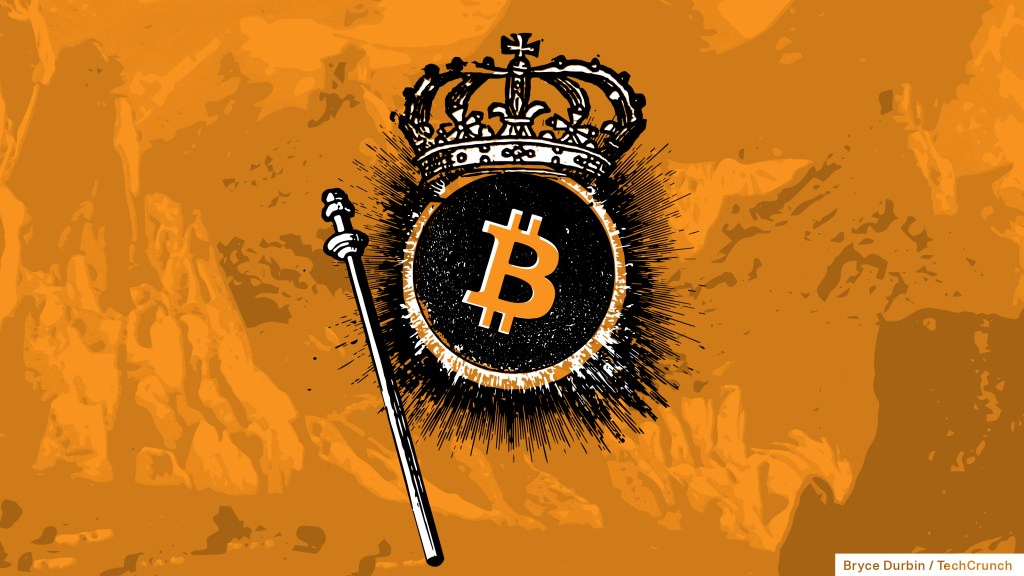The Bitcoin 2022 conference brought over 25,000 attendees to Miami last month to discuss the future of the world’s largest cryptocurrency. The event, which attendees have described as “extravagant” and compared to a bacchanal, featured a now-notorious keynote speech by Peter Thiel in which the venture capitalist rallied Bitcoin supporters against a list of people whom he described as Bitcoin’s enemies, including Warren Buffet and Jamie Dimon.
While Thiel’s speech grabbed a lion’s share of the attention surrounding the conference, many investors, developers and founders in the Bitcoin community convened at the same event to discuss a threat that could prove far more pressing than the aforementioned personae non gratae — competition.
Even as the overall crypto market has plunged this week, Bitcoin remains the most valuable crypto asset in the world, with a market capitalization of around $589 billion as of May 9. Its status stems, in part, from the advantage of having been the first cryptocurrency token on a public blockchain.
But as new blockchains continue to spring up, and after 2020’s “DeFi” summer that brought new traction to Ethereum, Bitcoin investors have had to start watching their backs. Now, the blockchain’s backers are pouring capital into efforts to ensure it can maintain its dominance as a form of money and expand into other use cases through decentralized apps (dApps) to keep up with competitors like Ethereum and Solana.
Bitcoin’s payments edge
Bitcoin’s edge has typically been described as its value as an asset to hedge against inflation, much like gold, because of its fixed supply. Bitcoin supporters, including Thiel, ARK Invest’s Cathie Wood and MicroStrategy’s Michael Saylor, all spoke at Bitcoin 2022 about its ability to act as a store of value when central banks relax their policies and let inflation run hot, as has been the case in the United States throughout the majority of the COVID-19 pandemic.
The reality has not been so simple, as Bitcoin has oftentimes traded down amid periods of rising inflation in the U.S. But Bitcoiners argue that its value is more clearly visible in developing nations, especially those experiencing hyperinflation or with sizable proportions of underbanked individuals. They view it as a relatively safe asset that can enable faster, more efficient payments both within and across borders.
The Bitcoin network itself only supports about five transactions per second, according to crypto exchange Binance. Bitcoin has integrated with a layer-two protocol called the Lightning Network to increase its speed and efficiency while lowering transaction costs, a piece of infrastructure used by the nation of El Salvador and major crypto exchanges such as Kraken.
Startup Lightning Labs, which raised a $70 million Series B round last month, is at the forefront of developing Bitcoin’s Lightning Network. It is building infrastructure for the Bitcoin Lightning Network akin to Visa’s payments network, Lightning Labs CEO and co-founder Elizabeth Stark told TechCrunch.

The Lightning Network can execute hundreds of thousands of transactions per second by settling transactions off-chain in a separate ledger, thus freeing up space on the layer-one Bitcoin blockchain while still adhering to its underlying protocol, Stark explained.
“People want access to Bitcoin, the asset … When you’re looking at stability, security and the global payments use case, and the global transaction aspects, that’s where Bitcoin and the Lightning Network will shine,” Stark said.
Lighting Labs recently announced a proposal to build Taro, a protocol that would allow individuals without bank accounts to send and receive money in the form of stablecoins that represent their domestic fiat currency through mobile applications.
“If I were Visa, I’d be scared, because there are a lot of people out there that have mobile phones, but now don’t need to tap into the traditional system, and then the merchants don’t need to pay the 3% fee plus 30 cents [for a transaction]. You can have fees that are dramatically lower than the legacy system,” Stark told TechCrunch.
Startup Moon, in fact, partners with Visa to enable users to buy goods and services with Bitcoin through the Lightning Network at any U.S.-based e-commerce site using Visa’s rails.
While Lightning Labs is focused on optimizing global payments through the Lighting Network, trading platform Robinhood has found the network useful in keeping network fees low on its new crypto offering, which it rolled out to users last month, Robinhood’s crypto CTO, Johann Kerbrat, told TechCrunch.
“We will support Lightning on the [Robinhood] app, so you will be able to connect it to pay merchants directly with the Lightning Network,” Kerbrat said. “It also means that you will be able to kind of create a channel between people using Robinhood outside of Robinhood and be able to exchange Bitcoin for almost zero fees.”
More than just an asset
Bitcoin’s low fees, enabled primarily by the Lightning Network, and early widespread adoption mean the blockchain has become synonymous with payments. Its closest competitor by value, Ethereum, is notorious for high network fees and is still worth less than half as much as Bitcoin by market cap. Newer challengers such as Solana offer lower transaction fees but are considered to be less secure.
But despite Bitcoin’s dominance in the payments realm, other blockchains are developing capabilities far beyond simple monetary transfers. As an open source blockchain, Ethereum lets developers easily build decentralized applications, or “dApps” on top of it, enabling use cases such as minting NFTs and offering DeFi lending products through which investors can earn interest.
As a result, Ethereum has been able to amass the largest ecosystem of tools, apps and protocols in the crypto world, and even competitors such as Polkdadot, Cosmos and Solana have more developers working on their blockchains than Bitcoin does, according to venture firm Electric Capital’s 2021 Developer Report.
Bitcoin, meanwhile, ranks just fifth by number of developers, below Cosmos and Solana. Its backers are trying to give Bitcoin a boost and attract developers to work on new projects in the ecosystem.
“A lot of [discourse] has been just about Bitcoin as an asset, and not necessarily Bitcoin as the network. And now I think we’re starting to see that paradigm shift, where people are looking at it more as an infrastructure,” Alex Chizhik, head of listings at crypto exchange Okcoin told TechCrunch.
Chizhik co-chairs Bitcoin Odyssey, an initiative launched in March by Okcoin in conjunction with venture firms including Digital Currency Group, GSR and White Star Capital, to deploy $165 million into projects that will “supercharge Bitcoin adoption,” according to the group.
Indeed, $165 million is a lot of money, but seems like a drop in the bucket for the world’s biggest blockchain. Venture capitalists deployed more than $30 billion into web3 last year, much of which flowed to projects on chains that innately enable smart contracts, unlike Bitcoin.
Stacks, formerly known as BlockStack, plays a crucial role in expanding use cases for Bitcoin. Its open source network allows custom smart contracts to be built on Bitcoin, enabling developers to use the Bitcoin blockchain to create dApps. DApps built on the Bitcoin network with Stacks include CityCoins, a token protocol through which local governments can raise money from investors, and NFT exchanges such as Hey Layer and Gamma.io.
“Ethereum definitely is leading the way in what can be done with things like DeFi and asset ownership, like NFTs, but that’s largely probably in the past three years. I think Bitcoin now has this opportunity to kind of catch up, take some of the best lessons learned, and really unlock the value and the base layer chain,” Brittany Laughlin, executive director of the Stacks Foundation, told TechCrunch.

The Stacks Foundation is a nonprofit arm within Stacks that supports governance, education and grantmaking to improve infrastructure within the Bitcoin network.
“Our role is really how to support growth of the network and make sure that we can fulfill our promise, which is a user-owned internet powered by Bitcoin,” Laughlin said.
Laughlin explained that without the Taproot upgrade implemented on the Bitcoin network late last year, which makes it easier and faster to verify transactions, the growth of Bitcoin as an ecosystem would have been much more limited. She noted that the Bitcoin community is generally hesitant to change anything about the protocol, and that even the Taproot upgrade was met with some internal resistance and conflict before it was finally implemented three years after it was first proposed. Still, she said, Taproot doesn’t solve all of the challenges Bitcoin faces, and further changes may be needed to continue building out the network.
Ultimately, though, Laughlin believes that Bitcoin will prevail in the long-run against other layer-one blockchains because of its first-mover advantage.
“Anyone who’s holding $100 of Bitcoin, from El Salvador to New York City, if they want to take a loan against that [$100], or if they want to secure an asset with it, they could do that [with dApps on Bitcoin],” Laughlin said.
Laughlin compared Bitcoin’s race against other blockchains to Apple’s competition with Android, wherein Apple often launches products significantly later than Android does, but has a greater focus on the user experience.
“Bitcoin is going to be like Apple, and secure the brand recognition, compatibility and ease of use — all of that comes to mind when I think of Bitcoin.”





























Comment